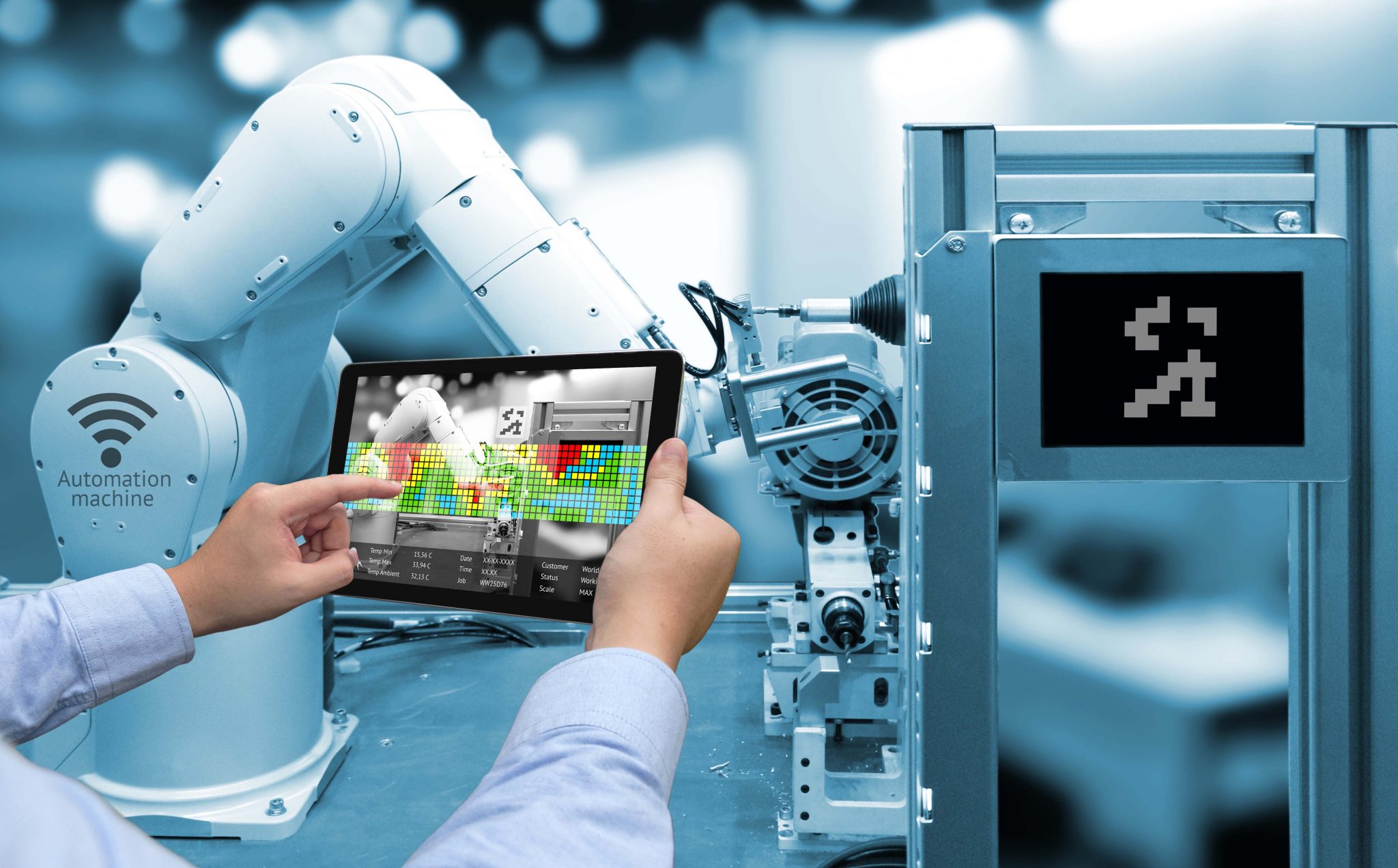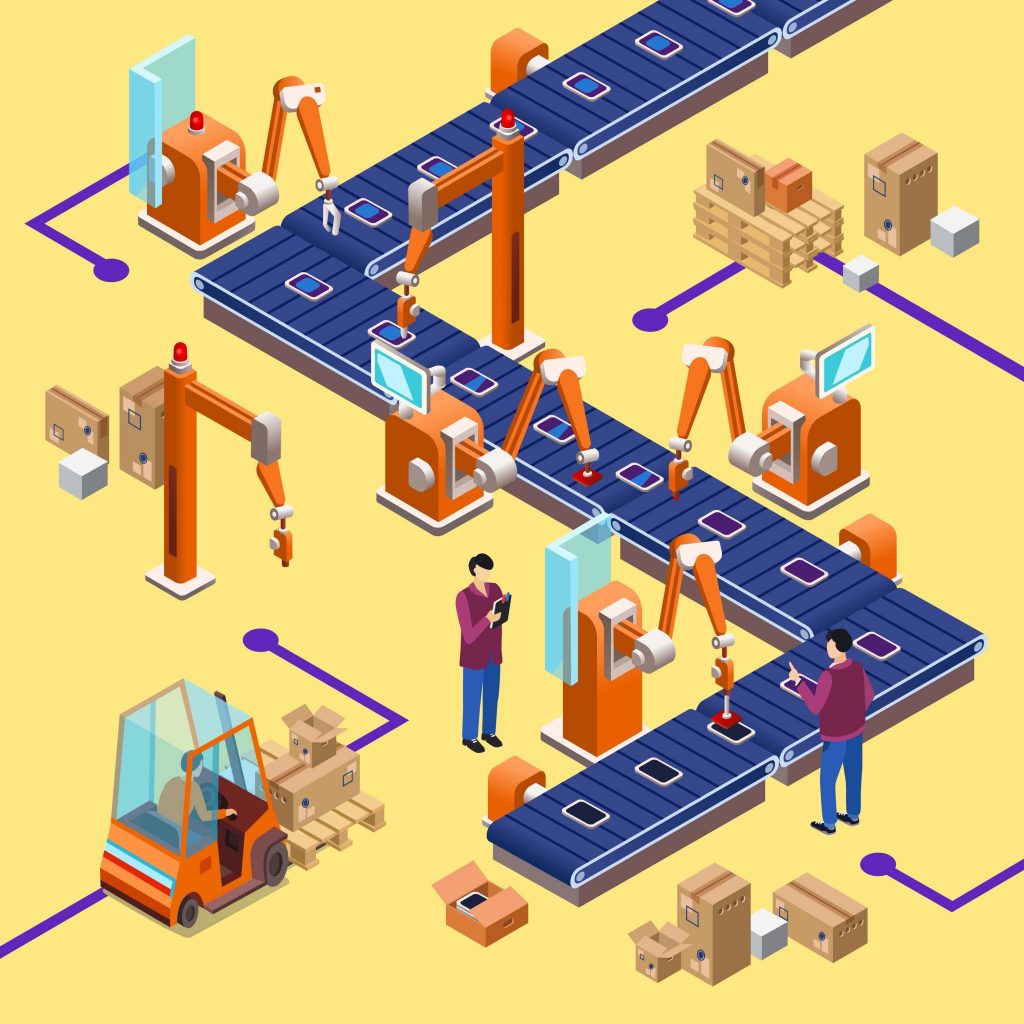It is becoming increasingly important for manufacturers to adopt industrial automation and smart manufacturing capabilities to streamline production and boost profit margins. Manufacturers can benefit largely through industrial automation processes to reduce downtime and provide customer-centric services.
The manufacturing sector is evolving.
In the past, products were more standardized. The demand signals were consistent and predictable. Underlying supply chains and systems were simple. Existing processes were able to meet the efficiency and quality standards as demanded by customers.
But such is not the case anymore.
Today, the world economy has become interconnected. Consumers have become more choosy in their selection of goods and services. This is forcing demand cycles to reduce their turnaround times and yield more productivity. Dynamic market trends are compelling manufacturers to deliver quality products in lesser time.
Moreover, the market is flooding with new competitors. They’re trying to gain their share of the lucrative industrial market. And they’re ready to use any technology or platform to create a unique selling proposition that can beat their competitors.
Factors like product quality, customization, after sales service, delivery time and availability have become increasingly important by the day.
IIoT and industrial automation propose to address these problems and provide effective solutions that can increase production levels, reduce operational downtime and make better utilization of manufacturing resources.
What is industrial automation?
Industrial automation can be widely understood as a system comprising of interacting technologies and automated control devices that result into automatic functioning of manufacturing operations and controlling them without significant human intervention. The automation process typically uses devices such as PLCs, PCs, PACs, etc. and various types of industrial communication technologies.
Traditional manufacturing processes and new technologies have evolved with time to give rise to modern industrial automation processes.
IIoT automated systems can work round the clock without any stoppage. So, earlier, the main purpose of automating an industrial plant was to increase productivity levels and reduce waste. Moreover, automated processes replace manual labor. This helps companies to save on labor wages and benefits.
Today manufacturing needs have evolved to include flexibility in the manufacturing process and produce goods of high quality.
For example, in the automobile industry, pistons can be installed in engines manually as well as by automated processes. While doing it manually, the error rates fluctuate between 1% to 1.5%. But the rates are reduced to 0.00001% when done through automated processes. This can help auto manufacturers to save substantially upon replacement costs as certain car models can be expensive to buy.
There are several reasons why companies opt for industrial automation systems:
High productivity
Manufacturers can hire hundreds of workers and have them work around the clock to increase production levels. Even after doing that the plant still has to be closed for maintenance and repairs, and on holidays. So, it’s not possible to have a 100% production up time.
Industrial IoT automation helps to attain close to 100% up time by working 24 by 7 and 356 days a year. It leads to a dramatic increase in production levels. IIoT based predictive maintenance capability further helps to prepare companies deal with breakdowns in a much better way and reduce operational downtime.
High Quality
Automated devices and robots don’t tire or experience fatigue like humans do. They don’t get bored and loose work focus. So, they don’t make many errors.
Industrial automation reduces errors and helps to enhance quality standards.
High flexibility
Humans need training for new processes. Adding a new task in the assembly line results into many training hours for operators. Besides, operators have to get used to new processes which takes time. Companies have to suffer the loss incurred due to reduced production and trainer fees.
Manufacturing robots and devices can be programmed to do varied tasks. New processes and methods can be instantly integrated in the manufacturing process. New production capabilities can be availed at affordable costs. This increases production flexibility.
High information accuracy
Management needs production related data to make informed decisions. Data collection, if done manually, can prove to be costly. Moreover, there could be instances of human errors while collecting data. So manual data has to be verified and checked for reliability before it can be used for any meaningful purposes.
The factory automation process gathers data automatically from sensors and devices. So it’s not required to “sanitize” it. Moreover, data can be obtained frequently as and when required. Managements can acquire the most recent data before undertaking important decisions.
High safety
Certain industrial environments are risky to work in. Many industrial processes use strong chemicals and/or heavy electrical voltage to manufacture goods. Workers and operators safety can be a concern in such cases. Companies have to provide, in some cases, large financial compensation in the event of work related accidents.
Industrial automation systems make the production line safe for operators to work in. Robots handle all hazardous work.
Take away
Companies can reap the benefits of IIoT and smart connected operations to streamline their manufacturing activities and make them cost effective.
In many ways, new technologies are revolutionizing the manufacturing sector.
Predictive maintenance helps manufacturers to anticipate production related pitfalls in advance. Proper contingency plans, prepared in advance, aid in mitigating risks and maintain production up times.
Data generated by IIoT enabled smart connected devices provide important insights which help managements to make informed decisions. Factory automation makes the manufacturing process more agile and customer-centric.
For manufacturers, it is becoming increasingly important to adopt smart manufacturing processes and create a special niche for their products, and to boost their profits.
Ideally, manufacturers should consult industrial automation experts to discover important manufacturing areas which require smart manufacturing capabilities and create a transition plan to adopt industrial automation.
You might also like
Stay ahead in tech with Sunflower Lab’s curated blogs, sorted by technology type. From AI to Digital Products, explore cutting-edge developments in our insightful, categorized collection. Dive in and stay informed about the ever-evolving digital landscape with Sunflower Lab.







